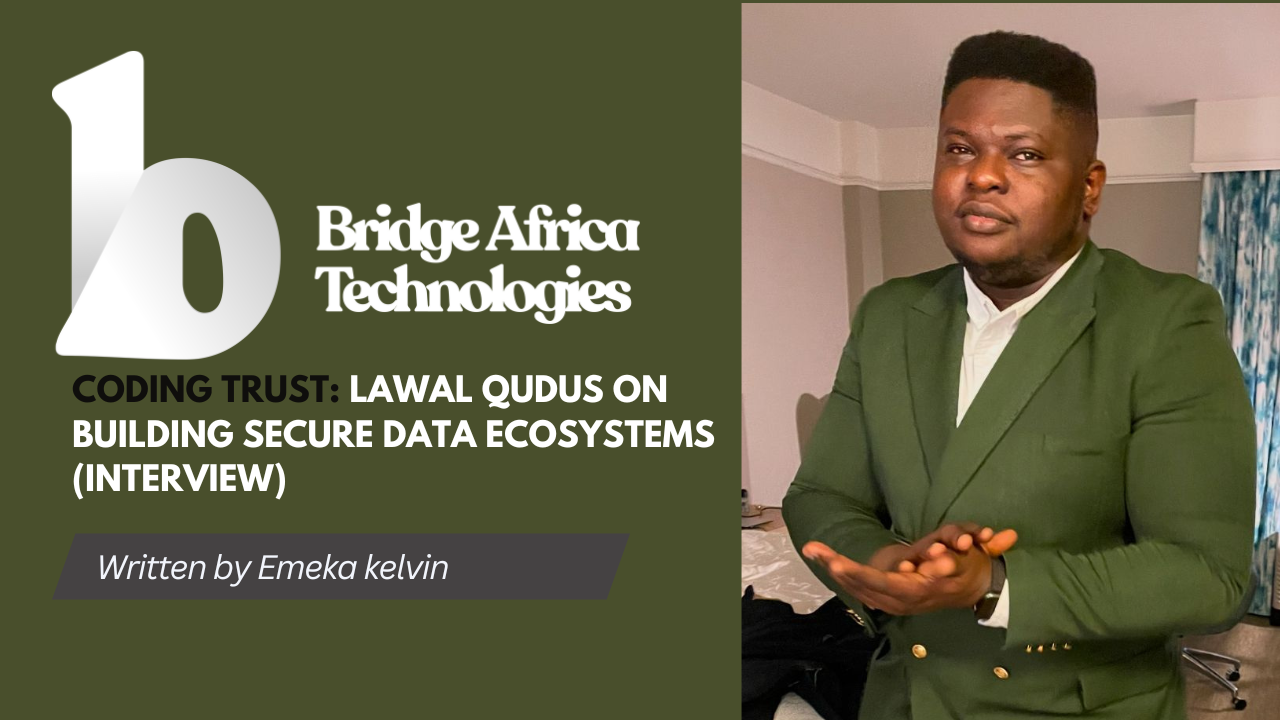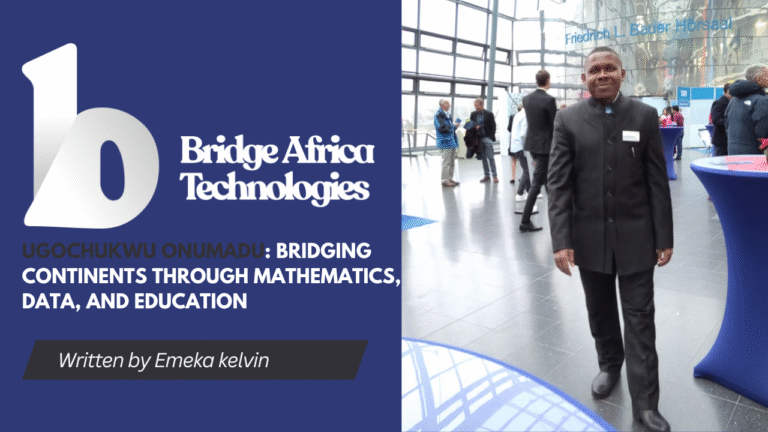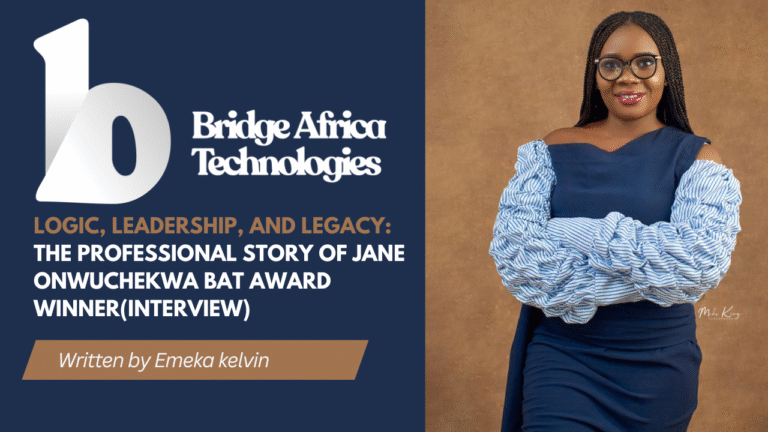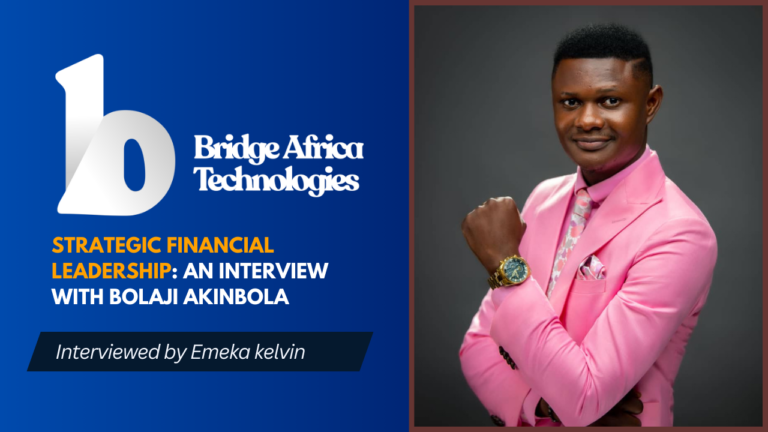Lawal Qudus is a dynamic and detail-oriented business and technical lead analyst with over seven years of progressive experience in cybersecurity, data analytics, finance, and healthcare systems. A strategic thinker and results-driven professional, Lawal is celebrated for his ability to transform complex data into actionable insights that power operational excellence and strategic decision-making.
In his current role as Senior Data Insight and Analytics Analyst at Citi Group, Lawal plays a pivotal role in driving data-driven solutions across global operations. He has engineered robust ETL pipelines that process over 1TB of data daily, optimized database performance by 30%, and developed real-time dashboards that significantly improve executive visibility and compliance with regulatory frameworks. His work not only enhances operational efficiency but also fosters a culture of innovation and agility within the organization.
Prior to joining Citi, Lawal served as the Cybersecurity Lead Analyst at Evolvehive Limited, where he spearheaded the development and implementation of critical security frameworks aligned with ISO 27001 standards. He led a team that successfully reduced incident resolution time by 35% through the deployment of a robust SIEM system and proactive threat detection strategies. His work in conducting vulnerability assessments, enhancing endpoint protection, and driving organization-wide cybersecurity awareness programs laid a solid foundation for building secure, compliant, and resilient digital infrastructures.
An alumnus of the Rochester Institute of Technology, Lawal earned a Master’s degree in Computational Finance, where he deepened his expertise in financial risk modeling, portfolio management, and advanced data analytics. His technical fluency spans Python, R, SQL, Tableau, Power BI, and cloud platforms such as AWS and Azure — tools he uses with precision to drive meaningful business transformation.
Lawal’s exceptional contributions to cybersecurity and data analytics were recognized with the BAT Award of Excellence 2024, where he received the Cybersecurity Innovation and Leadership Award, solidifying his place among Africa’s top tech innovators. His publication on Data Security and Analytics in Emerging Economies highlights his thought leadership and commitment to advancing data protection in rapidly evolving markets.

READ ALSO: BAT Most Influential Women In Tech In Nigeria 2024 -Awards
As he looks ahead, Lawal aims to expand his influence across global data strategy, particularly in emerging markets, where he can champion ethical data governance, scalable cybersecurity frameworks, and inclusive technological innovation. His journey reflects not just professional excellence, but a purposeful mission to bridge the gap between data complexity and meaningful impact — a vision that resonates far beyond the numbers.
Interview with Lawal Qudus
Award-Winning Sr. Data Insight and Analytics Analyst | Cybersecurity Leader | RIT Alumnus
1. You’ve had an impressive journey from Lagos to Citi Group in New York. Can you walk us through your background and what inspired your transition into data analytics and cybersecurity?
Lawal Qudus: Absolutely. My journey began in Lagos, Nigeria, where I studied Chemical Engineering at the University of Lagos. But even during my undergraduate studies, I had a strong curiosity about how data shapes decision-making. After graduation, I transitioned into the tech space, where I initially focused on cybersecurity. That early experience exposed me to the importance of not just protecting systems but also understanding the data flowing through them.
Over time, I realized that the intersection of data analytics, risk mitigation, and business strategy was where I could have the most impact. This led me to pursue a Master’s in Computational Finance at Rochester Institute of Technology. There, I deepened my skills in data science, risk modeling, and financial analytics — giving me the technical and strategic toolkit I needed. Moving to Citi Group was a natural progression, allowing me to apply these skills at scale in a global financial institution.
2. You’re currently a Senior Data Insight and Analytics Analyst at Citi Group. What does your role entail, and how has your work contributed to the organization’s success?
Lawal Qudus: At Citi Group, my primary responsibility is to bridge the gap between business needs and technical execution. I translate complex business requirements into scalable data solutions. I’ve led the development of ETL pipelines that process over a terabyte of data daily, optimized query performance by 30%, and built real-time dashboards that have significantly enhanced how our leadership tracks risk and operational performance.
One of the projects I’m particularly proud of involved developing a data pipeline that improved our data validation and reconciliation process. This not only ensured regulatory compliance but also provided stakeholders with faster, more reliable insights. It’s fulfilling to know that my work contributes to more informed decisions at a global level.
3. In 2024, you were honored with the BAT Award of Excellence for Cybersecurity Innovation and Leadership. What did this recognition mean to you, and how did it reflect your work?
Lawal Qudus:
Receiving the BAT Award of Excellence was a humbling and inspiring moment. It wasn’t just a recognition of my technical contributions — it validated the years of hard work, learning, and collaboration across different industries and geographies. The award was particularly special because it acknowledged my leadership in implementing cybersecurity frameworks that align with business objectives.
Back in Nigeria at Evolvehive Limited, I led a team that implemented a full SIEM system and reduced incident resolution time by 35%. These experiences laid the foundation for my work at Citi Group, where data protection and governance are crucial. The BAT Award reminds me that innovation doesn’t have to be loud; it just needs to solve real problems effectively.
4. Let’s talk about your experience working in healthcare and insurance analytics at Palm Inventive Creation. What were some of the key insights and innovations you introduced during that time?
Lawal Qudus:
Working at Palm Inventive Creation was eye-opening. We dealt with sensitive data related to patient care and insurance claims, which required a meticulous approach to both accuracy and compliance. One of the major challenges was predicting patient readmission risks, which has significant implications for healthcare outcomes and cost control.
I led a team that built predictive models using Python and SQL, which improved risk prediction accuracy by 15% and reduced readmission rates by 10%. Additionally, we implemented data governance frameworks that increased data accuracy and consistency by 15%. These improvements directly impacted patient care quality and operational cost reduction. It was a clear example of how data can drive meaningful change in people’s lives.
5. You’ve worked across several sectors — finance, healthcare, and cybersecurity. How do you adapt your skills across these domains, and what’s your approach to solving complex problems?
Lawal Qudus:
Great question. I believe the core of problem-solving lies in understanding the business context. Whether I’m working on a healthcare model or a financial risk dashboard, my first step is always to ask: What is the end goal? Who does this impact?
I rely heavily on data modeling, stakeholder interviews, and iterative testing to craft tailored solutions. My technical toolkit — Python, R, SQL, Tableau, and Azure — stays the same, but I tweak how I apply it based on the industry. The key is being both flexible and meticulous. I like to say that I solve problems like an engineer and communicate them like a storyteller — which keeps everyone aligned.
6. Being a Nigerian professional doing exceptionally well abroad, what has your experience been like navigating your career internationally?
Lawal Qudus:
It’s been both challenging and deeply rewarding. Coming from Nigeria, I carry a strong sense of purpose — a desire to not only succeed personally but to represent where I come from with excellence. At times, navigating international corporate structures and cultural expectations requires adaptation and resilience. But I’ve also found that my diverse background gives me a unique lens.
My upbringing taught me resourcefulness and grit, which have served me well, especially when facing high-pressure deadlines or cross-functional collaboration. I’ve also tried to serve as a mentor for younger professionals and students, especially Nigerians in STEM, because I believe our stories matter and our presence in global industries is important.
7. With a strong foundation in cybersecurity, what are your thoughts on the future of data security and its intersection with business strategy?
Lawal Qudus:
We’re moving into a world where data is not just a byproduct of business operations — it’s the business itself. As organizations become more digital, the risk surface expands, and cybersecurity can no longer be treated as a backend concern. It must be integrated into business strategy from day one.
What excites me most is the growing role of predictive analytics in cybersecurity. Instead of waiting for breaches, we can now use machine learning to anticipate threats. That’s where my dual experience in data and security comes into play — I design systems that are both intelligent and secure. I see a future where businesses win not just by moving fast, but by moving securely and strategically.
8. Finally, what are your aspirations for the next few years, and how do you hope to continue making an impact in your industry?
Lawal Qudus:
Looking ahead, I want to contribute more to shaping global data governance strategies, especially in emerging markets like Africa. I’m particularly interested in how we can build data infrastructures that are secure, ethical, and inclusive.
I also want to author more publications around data ethics, cybersecurity, and the role of data in shaping public policy — topics I’ve started exploring through my current writing. Long-term, I see myself in a leadership role where I can bridge the gap between technology and strategy at the highest levels — possibly even launching initiatives that support African data professionals globally.
Ultimately, my goal is impact — not just in numbers, but in people, in systems, and in how the next generation sees what’s possible.
Conclusion of Interview with Lawal Qudus
An Inspiring Journey of Innovation, Excellence, and Purpose
As we conclude this enriching conversation with Lawal Qudus, it’s clear that his story is more than a professional success — it is a powerful narrative of resilience, strategic thinking, and purposeful innovation. From his academic roots in Nigeria to his impactful roles across industries in the United States, Lawal embodies what it means to be a globally relevant Nigerian professional making meaningful contributions in cybersecurity, finance, and data analytics.
Throughout this interview, Lawal shared his remarkable journey — from building predictive healthcare models that improved patient outcomes, to designing ETL pipelines at Citi Group that process over a terabyte of data daily. His ability to seamlessly merge technical precision with business acumen sets him apart as a rare talent. Recognized with the BAT Award of Excellence 2024 in the Cybersecurity Innovation and Leadership category, Lawal has proven himself a forward-thinking leader whose work is not just impressive in scale, but transformative in impact.
What resonates most is Lawal’s unwavering commitment to ethical data governance, innovation, and mentorship. As a Nigerian thriving abroad, his journey stands as a beacon of what’s possible when passion meets purpose. His aspirations to shape global data policy, support upcoming African tech professionals, and contribute to inclusive innovation reflect a vision far greater than personal success — it’s about creating pathways for others to rise.
At Bridge Africa Technologies, we are proud to spotlight and celebrate Nigerians like Lawal Qudus — individuals who are not only excelling on the world stage but are actively shaping the future of industries. His story serves as a powerful reminder to young Africans that no dream is too distant, no field too technical, and no vision too bold.
To every aspiring data analyst, cybersecurity enthusiast, or young leader navigating their journey — may Lawal’s example inspire you to embrace curiosity, pursue excellence, and lead with purpose. The world is waiting for your innovation, your courage, and your voice.




